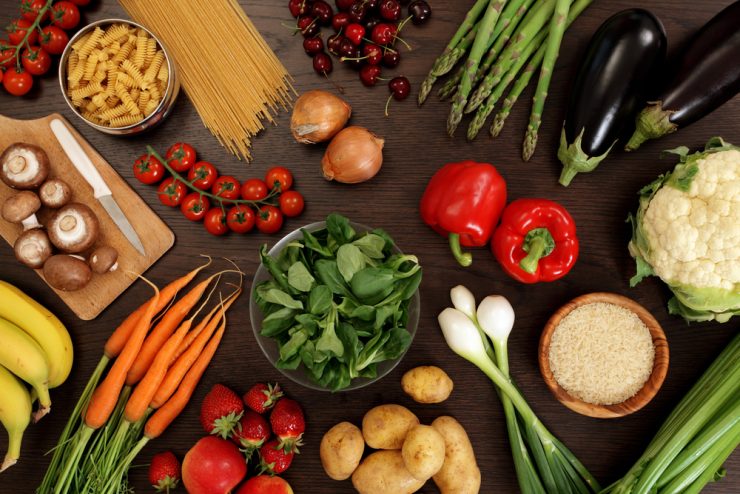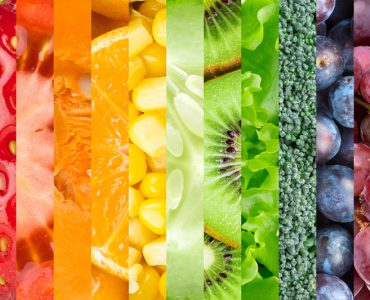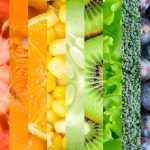Vegetarians and vegans are given the same healthy diet message as everyone else; the basic rule is to have a balanced diet. A balanced diet from the eatwell plate, published by the Food Standards Agency is recommended for vegetarians too.
Carbohydrates Carbohydrates should make up a third of all meals. These include bread, rice, potatoes and pasta, and fortified cereals to increase iron intake.
Fruit and vegetables Fruit and vegetables are required to keep you healthy. Ensure you have five portions a day. In particular make sure you consume a source of vitamin C to increase your absorption of iron, try drinking orange juice or other fruit drinks rich in vitamin C.
Dairy Dairy is the best source of calcium for healthy bones. Eat up to three portions a day. You can find it in milk, yoghurt, and cheese.
Protein Although meat is the best source of iron and essential amino acids, there are other meat free and non-dairy alternatives. Try not to eat just the one protein source or you may be missing out on other necessary nutrients. The best vegetarian sources of protein are eggs, milk, cheese and other dairy products. The best vegan sources of protein are pulses, nuts, seeds, soya products, quorn and wheat proteins.
Selenium It is important that vegetarians consume a source of selenium every day to maintain a healthy immune system. If you are a “vegequarian” and have fish in your diet, then this is a good source of selenium. Other sources are bread and eggs. A good source of selenium is brazil nuts, so vegans could eat two brazil nuts a day to get their quota.
Fat Avoid food high in saturated fat, replace with unsaturated fat like vegetable oils (including sunflower, rapeseed and olive oil), avocados, nuts and seeds.
Sugar Avoid sugary drinks and sweet snacks
Fluids
Watch out for dehydration, this can cause long-term physical and mental damage. Drink six to eight glasses of fluid a day.













